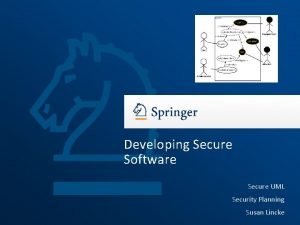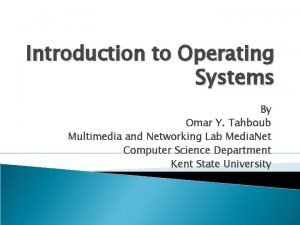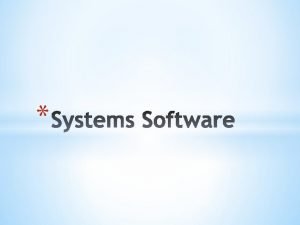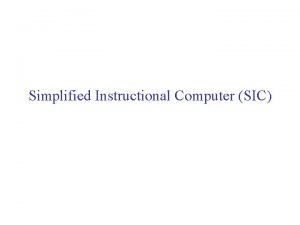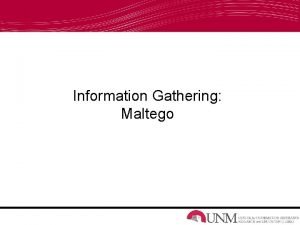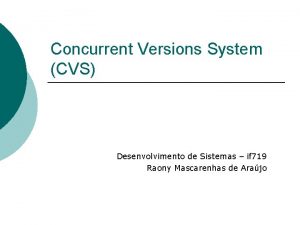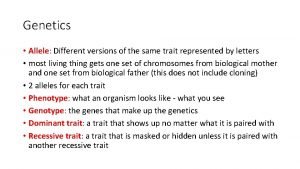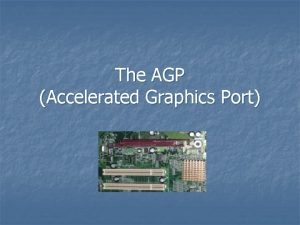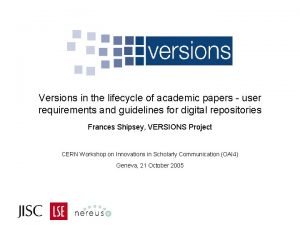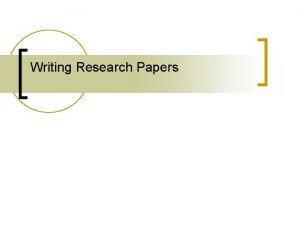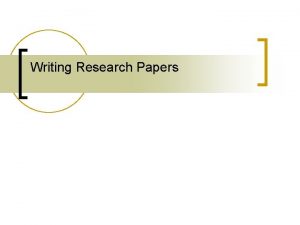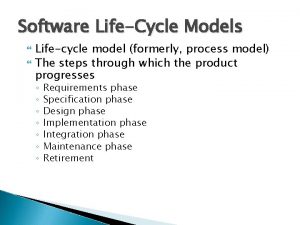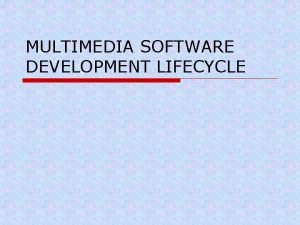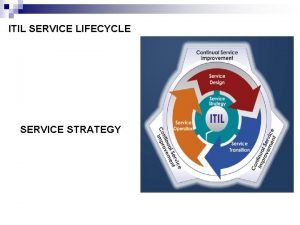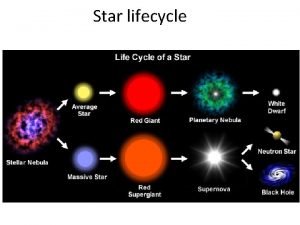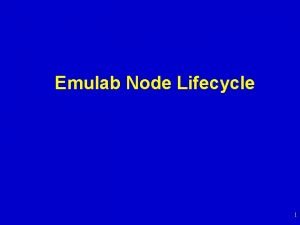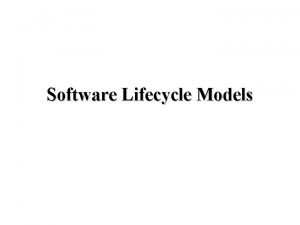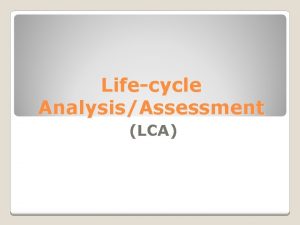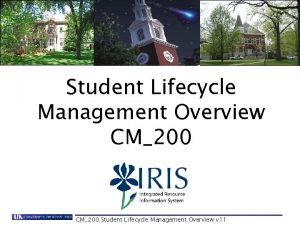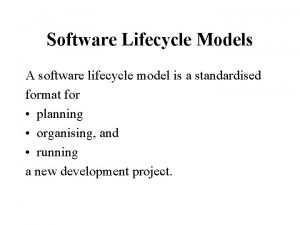Versions in the lifecycle of academic papers user



















- Slides: 19

Versions in the lifecycle of academic papers - user requirements and guidelines for digital repositories Frances Shipsey, VERSIONS Project CERN Workshop on Innovations in Scholarly Communication (OAI 4) Geneva, 21 October 2005

Outline • • Issues relating to versions in digital repositories The VERSIONS Project Other initiatives on version control Managing versions in other contexts – examples of approaches • Possible approaches for versions of eprints

Issues relating to versions • Copyright • • generally cannot use publisher versions of PDFs national policies can vary, eg in Netherlands can use pre-1997 author versions without seeking publisher permission slight variations between final author manuscript and published version publisher conducts final corrections via proofs on paper • Collaboration and co-authoring • • naturally leads to proliferation of versions especially when collaboration is inter-institutional – paper is placed in working paper series of each institution and on personal websites more effort needed by all authors to keep versions in line with each other and to obtain final version copies from the corresponding author

Issues … • Administration of different versions – objects and metadata • • • Authors may already be posting their papers in a number of different locations – personal website, departmental website or working paper series, subject-based working paper series, subject collections such as Re. PEc, university database of research outputs, and now institutional repositories Keeping versions up to date in all of these locations is burdensome – authors may take pragmatic decision to update only personal website Role for libraries and repository managers – streamlining processes • Informal communication and time lag in publication • • 3 -year wait for publication of journal article is common in economics Preprint and revised versions up to final author postprint are important phases in the communications cycle

Issues … • Development of a unit of intellectual content • • Herbert Van de Sompel (et al) (2004) Rethinking scholarly communication : building the system that scholars deserve, D-Lib 10 (9) – ‘Recording the dynamics of scholarship’ How many versions to keep Role of comments and discussion in the lifecycle of a paper Journal article definitive and final version, but working papers and technical papers also definitive, can reach a final settled version and have a distinct existence in own right • Quality issues - peer review • • Labelling different versions to indicate whether refereed, eg in eprints. org For prominent authors in your field - any version will be worth reading

Issues … • Authors’ control over versions of research outputs • • Persistence • • • Pre-prints and postprints commonly cited – possible implications for cited author or citing author if the referenced work changes or disappears Revision vs persistence – a tension Impact/visibility and citations • • Placing a copy on personal website – authors retain (fairly) full control Posting a copy in a repository – who decides about removing earlier versions, authors, repository managers, or university administration Awareness that once posted on the web, papers cannot easily be withdrawn Conference, workshop and seminar papers – important for disseminating work quickly and obtaining feedback – but hope for citation of working paper or journal article; hence abstract only conference proceedings Digital objects but still mirroring print process • Multiple versions – not well linked to each other – still following model of print snapshot PDF views of evolution of the paper

The VERSIONS Project • VERSIONS : Versions of Eprints – user Requirements Study and Investigation of the Need for Standards • Funded by the Joint Information Systems Committee (JISC) under the Digital Repositories Programme • London School of Economics and Political Science (LSE) - lead partner • Nereus – consortium of European research libraries specialising in economics – associate partner • 18 -month project – July 2005 to December 2006

A library network

Aims of the VERSIONS Project • to clarify the position on different versions of academic papers in economics available for deposit in digital repositories, in order to help build trust among academic users of repository content • to produce a toolkit of guidelines about versions for authors, researchers, librarians and others engaged in maintaining digital repositories • to propose standards on versions to JISC to inform discussions and negotiations with stakeholders

Focus of the project • Economics • • • Established pattern of using preprints Importance of journals coupled with long lead times for publication Builds on existing experience and partnerships • Eprints • • Builds on experience of other projects and programmes Not looking at data or other object types • Europe • • Cultural and IPR differences worth investigating Builds on existing experience and partnerships

Approach of the VERSIONS Project • User requirements study • • • Talking to authors, researchers, librarians, repository software developers, relevant standards communities, and other stakeholders Attitudes and current practice Interviews, online survey and evaluation of user study • Publications lists analysis • Analysis of publications lists of 70 economists in Economists Online repository, looking at availability of full text – By date of publication – By country – By publisher/self-archiving policy

Guidelines and standards • • Reaching consensus with stakeholders Development of guidelines on good practice Production of a toolkit for researchers Recommendation of standards

Feedback from first set of interviews • Authors retain many versions of their work • Most of these are not seen as public versions • May actively seek to keep some versions out of the public domain or to control their use • • • Very early drafts circulated between co-authors Results that are early or tentative (conference presentations) Evidence of rejected journal submissions • Delay in publication of peer-reviewed articles contributes to the use of other dissemination outlets

Feedback from first set of interviews • Posting papers in multiple locations – administrative effort to update in each location • Collaboration with co-authors requires additional effort to manage versions • Use of date is crucial; simple way to identify latest version of others’ work would be excellent – a ‘nonobvious task’ at present • Essential to be able to identify the definitive versions and to point to journal article for citations • Trade-off between wide dissemination and control over versions

Other initiatives on versions • NISO/ALPSP Working Group on Versions of Journal Articles • • Policy paper from February 2005 by Sally Morris Two groups – technical working group and review group Developing use cases http: //www. niso. org/committees/Journal_versioning/Journal. Ver_com m. html • JISC initiatives • • Digital Repositories Programme – 21 Projects Scoping Study on Repository Version Identification, commissioned by the JISC Scholarly Communications Group – to report in February 2006

Versions in other contexts • Literary criticism • • • Shakespeare – quarto and folio editions Textual transmission Variorum editions have existed in the print age – new initiatives to produce electronic variorum editions • Software development • • • Concurrent versioning systems used by developers Release numbering systems Divergence of software – local customisation by or for clients • Continuous updating • • A problem in print environment, eg legal encyclopedia looseleaf publications – earlier versions lost A solution in the fully digital environment? - earlier versions can be retained and compared – Cf Wikipedia

Possible approaches • Labelling • • • Describing • • MARC 21 Linking entry fields (76 X-78 X) Dublin Core element - relation Dublin Core refinements – has. Version, is. Version. Of Comparing text • • • Author annotations and free-text descriptions in metadata Date Cover sheets – standard template Linking • • Reach consensus on terminology – naming conventions Numbering systems, cf software release Formats Tools Signposting • • To published journal version (for citations) To author-approved latest version of pre-print (for full elaboration of argument, proof, supporting data)

Contacts • The Library at LSE • www. lse. ac. uk/library • Nereus • www. nereus 4 economics. info • JISC Digital Repositories Programme • http: //www. jisc. ac. uk/index. cfm? name=programme_digital_repositori es • VERSIONS Project • versions@lse. ac. uk

 Secureuml
Secureuml Operating systems
Operating systems Single user and multiple user operating system
Single user and multiple user operating system Sic example
Sic example Maltego versions
Maltego versions Concurrent versions system
Concurrent versions system Different versions of the same trait
Different versions of the same trait Snow white and the seven dwarfs gender roles
Snow white and the seven dwarfs gender roles What is spm
What is spm Agp versions
Agp versions điện thế nghỉ
điện thế nghỉ Một số thể thơ truyền thống
Một số thể thơ truyền thống Nguyên nhân của sự mỏi cơ sinh 8
Nguyên nhân của sự mỏi cơ sinh 8 Trời xanh đây là của chúng ta thể thơ
Trời xanh đây là của chúng ta thể thơ Bảng số nguyên tố lớn hơn 1000
Bảng số nguyên tố lớn hơn 1000 Thiếu nhi thế giới liên hoan
Thiếu nhi thế giới liên hoan Tỉ lệ cơ thể trẻ em
Tỉ lệ cơ thể trẻ em Tia chieu sa te
Tia chieu sa te Các châu lục và đại dương trên thế giới
Các châu lục và đại dương trên thế giới Thế nào là hệ số cao nhất
Thế nào là hệ số cao nhất
